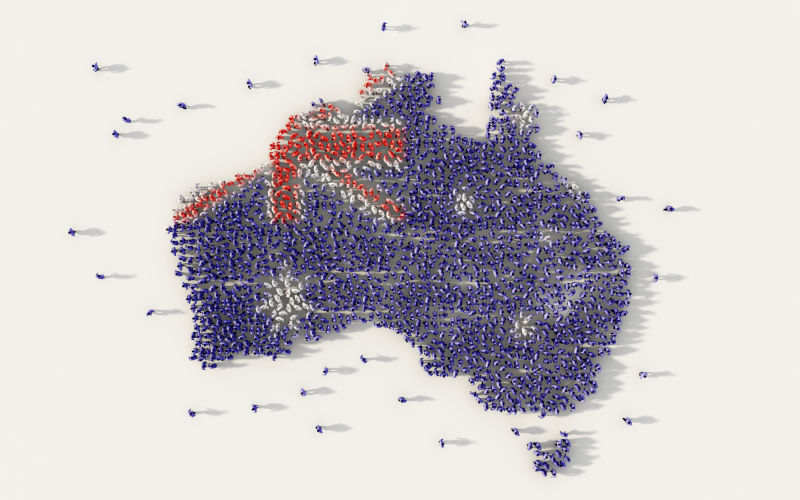Challenging monetised individuality as the basis of our futures
June 27, 2024
This is a mildly edited part of my 1995 Boyer Lectures, which we have seriously failed to follow. I offer it now as evidence of our failure to include the social part of our lives in the Gross Domestic Product model of society by assuming monetised individuality and competition as the basis our futures!
On the sixth day, in Genesis, God created human beings, giving primacy to men’s views. How can we re-create the world to correct this astigmatic beginning of Judeo Christian history?
The exclusion of women is not the only problem with the way the world is being run, but it is my area and a metaphor for what is missing from civil society.
So let us start with defining a truly civil society. Civil is a rather old-fashioned word meaning polite, lawful, non-military. It relates to the notion of a well-governed social system.
My vision of a very civil society involves social connections with political life. Politics must combine the valuing of difference, intertwined rights and responsibilities, with collective and democratic involvement in decisions which affect our wellbeing.
Civil society also resonates with the term civic and the sense of the body politic, the political sphere which we vote to entrust with power over us. The concept of manners seems to me in the broadest sense to be civil behaviour - a respect for others and for difference, a set of social mores which makes interactions both pleasant and productive.
The term ‘civil’ offers alternate paradigms to counter the (then and now current) public policy assumptions about competition and privatisation which are (still) unravelling the social fabric.
Is a truly civil society possible? Yes, if we define the elements and work out what we need to change. I believe a truly civil society is (still) premised on some core assumptions about human beings:
First, we are primarily social beings, defined by our relationships, linked to a broader society. The links between us are important because they define who we are and how we see ourselves in relation to others. We are born with a capability for good and evil, and we (need) continue to learn trust, sociability (to reduce) distrust and aggression. Second, we can unlearn as well as learn new ways. We are very much products of our environments but, because we are human and thinking beings, we can choose how we respond to our experiences.
Third, we define ourselves through how others see us. We want to belong (as) we want to be accepted by the group. We can enjoy the status that comes from either giving or receiving, depending on which is the more valued.
Therefore, it is our social relationships which constitute society, not our individuality. Putting the social back into political decisions seems almost self- evident, but somehow we have had an excess of market forces and competition which divides us.
We must design social processes which encourage us to stay connected and build stores of trust for the bad times. We need a perception of fairness and justice that is built on our respect for diversity and recognition of our common humanity. We should review and rewrite policies and programs which create a sense of exclusion, which fail to promote justice. (These will) destroy the sense of common wealth and common good which is so necessary for social cohesion.
We need to undermine the political policy focus on the lone greedy figure of economically rational man. Humans evolved in communities, sharing tasks and (gender) responsibilities. This sharing is (still) too often forgotten when the more affluent buy more privacy. Those who rule us are a case in point; they are well insulated from recognising human needs and (legitimate) human interaction.
For the rest of us, households shrink in size and more people live alone. For the first time in our history many of us make deliberate efforts to connect in person, even though we use phones and newer communication technologies to connect across space.
Relationships, social life, family life, creativity, emotions, personal care and nurture, are rarely seen as having the importance of say, interest rates. The social fabric of communities and neighbourhood, the many daily encounters which weave the threads that bind us, remain a shadow, a mere safety net with holes.
The agora was the meeting place of Athenian democracy, barred to slaves and women, but it’s still symbolic of the processes of participation and debate which underpin a truly civil society. Maybe the links of different kinds which now take place on the Internet may resemble ’town meetings’. However, they ignore the bonding of the face-to-face contact in the coffee shop beforehand, or the serendipitous but often productive encounters at the bus stop.
I’ve used the term ‘social capital’ deliberately throughout these lectures because this is masculine language, and I want to emphasise the relationship between the social and other forms of capital. Financial capital, physical capital and human capital cannot exist without a social base, ergo the need for high social capital.
How do we increase our social capital? There have been no programs specifically designed to encourage community action over the past decades. In the 60s and 70s there were debates on community development, but these lost out to advancing economic frameworks. (These grew from the coming century)
I am interested in changing the mainstream institutions so we all have access to opportunities for social capital production. If we don’t change the way we are governed and the use of public resources, those without choices are left with the problems that we have continued to suffer these 30 years following my 1995 Boyer lecture.

